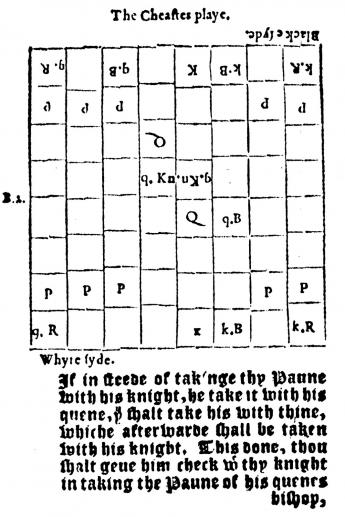Tip
For Chess Players: "The Ententiue Partes of Mannes Vnderstanding"
A collecting tip by Jack Lynch
Not every reference book is strictly utilitarian — not every reference book, in other words, tells its users things they need to know. Many tell them what they simply want to know, and how they might amuse themselves. This explains the abundance of reference works that teach readers to play games.
Among the first guides to a board game in English is a compendium of advice on chess, "The Pleasaunt and Wittie Playe of the Cheasts Renewed", by the Portuguese pharmacist Pedro Damião of Odemira. His "Questo libro e da imparare giocare a scachi et de li partiti" was originally written in Italian in 1512, then translated into French, and finally into English in 1562. The subtitle to the English edition promises
“Instructions Both to Learne It Easely, and to Play It Well.”
James Rowbothum, the English translator, thought he was performing an important service to the state. In his dedication to Robert Dudley, Queen Elizabeth’s favorite, he explained the genuine advantages of chess-playing. Chess would help statesmen understand “the graue and waightye affaires of Princes,” he explained, and would also provide some recreation to those who sought a workout not for the body but for the mind: they would find themselves “exercised not with the outward strength of the bodye, but with the inwarde force of witte and intelligence, to the great sharpening of the ententiue partes of mannes vnderstanding.”
Reference Book of the Day
Damiano da Odenara. The Pleasaunt and Wittie Playe of the Cheasts Renewed with Instructions Both to Learne It Easely, and to Play It Well: Lately Translated out of Italian into French: And Now Set Furth in Englishe by Iames Rowbothum. London, 1562.
More chess books
>>> Oettinger, Bibliotheca shahiludii: Bibliothèque du jeu des échecs. Bibliothek des schachspiels
Published in “You Could Look It Up”, presented here by permission of the author.

